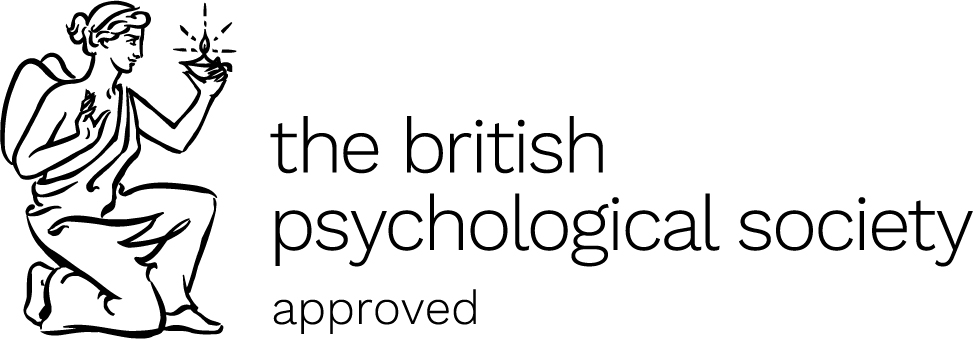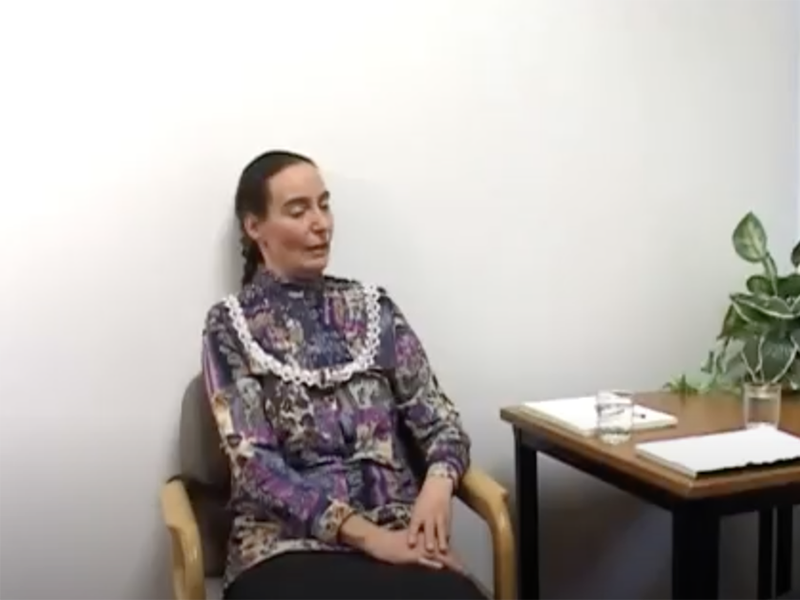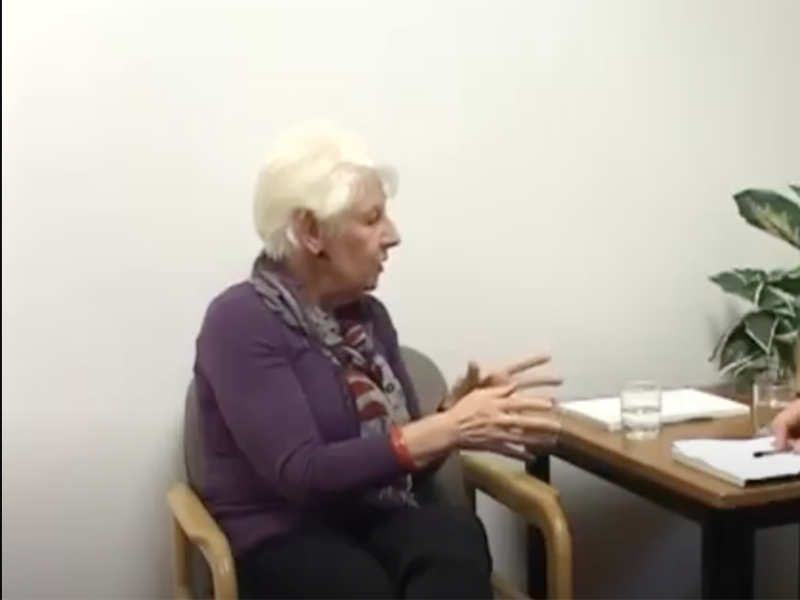
Course Brief
CLICK HERE TO BOOK
This course forms part of the following certificate:
Modules may be booked individually or together as a full Certificate.
Solution Focused Brief Therapy offers at least an enhancement to existing therapeutic approaches and at best an alternative to other evidence-based therapies. It utilises process techniques that predate CBT but which the latter has begun to embrace, whilst sharing a great deal with both Systemic and Client-Centred approaches. This course gives you an in-depth introduction to this effective approach.
Can be taken as an individual two-day course or as part of the BPS Approved Certificate in Resource Based Therapies (3 modules/5 days training) or Certificate in Solution Focused Therapy.
CLICK HERE TO BOOK
This course forms part of the following certificate:
Modules may be booked individually or together as a full Certificate.
This evidence-based two-day course is designed to provide you with the highest possible standard of training, a solid grounding in Solution Focused Brief Therapy (SFBT) and enable you to make immediate use of your learning on return to your workplace. It is invaluable in a range of health care and social services environments across the age span.
What you will take away from the course:
- An understanding of the principles and techniques contained within Solution Focused Brief Therapy (SFBT)
- A toolbox of simple but effective strategies and tips for working more successfully with your clients, no matter how difficult or stuck they are
- An approach for dealing with increasing work pressures more productively
- Discover how “brief” doesn’t have to mean “superficial” or “second rate”, but can mean “better and more effective”
- New insights into your clients and into solutions to their problems. Understand what “client-centred” really means
- Techniques to prevent client dependency
- Increased confidence for working with your most complex and difficult clients
Why you cannot afford to miss this course:
- Learn how complex multiple problems don’t need lengthy complex solutions
- Effect change in behaviour, thoughts and feelings with only 1-4 contacts… even with very “stuck” clients
- Identify your most challenging clients’ personal strengths and resources
- Discover how to be optimistic and motivated with your most difficult clients
- Learn how to be brief when you were trained to be deep and spot complex causes and needs
- Extensive real case illustrations
- Video demonstrations of techniques
- Case consultation with lots of opportunities to address delegates’ difficulties with clients
Course outline:
- Introduction to Solution Focused Brief Therapy (SFBT)
- Evidence base and applicability to different client and staff groups. Understanding the trap of the CLEPPER approach in traditional models of helping.
- Softening Things Up
- Rapport building (with a difference!).
- Introducing problem variation and change perception
- Scaling to identify client resources and solutions
- The role of Exceptions and how focusing on how things could be worse makes them better
- Why don’t people solve their problems
- The role of “experimental behaviour”
- Doing the problem in detail and pattern intervention
- What constitutes a complex case?
- Future causality and social constructionism as a way of viewing complex cases differently
- Involuntary/mandated clients and ASD diagnoses
- An introduction to the Miracle Question (MQ)
- Outline and purpose of the MQ
- Video / live demonstrations of the MQ
- The Miracle Question Continued
- MQ practice
- Where does the MQ fit into therapy and where do you go afterwards?
- Dealing with unhealthy and unrealistic Miracles
- What to do if your client’s preferred future is one you cannot support?
- Pretence and treating weaknesses as strengths
- Treating deficits as resources and the therapeutic value of faking
- Case consultancy
FAQ about this course:
-
Do I need prior knowledge of Solution Focused Brief Therapy?
No prior knowledge is required. However, a background in a "helping profession" working within a defined model of practice is desirable but not essential. -
How will I know if Brief Solution Therapy will work with my clients? They are very unmotivated/ damaged/cognitively impaired.
The evidence base for Brief Solution Therapy is now very extensive and one of its key strengths is that it does not require the client to even agree they have a problem in order for the approach to be used. The only requirement is that the client is able and willing to communicate with you in some way. The approach has been used with those identified as offenders, those with Autistic Spectrum Disorder and those with severe enduring mental health problems – amongst many others -
I’m not a Brief Solution Focused Therapist. I’m a CBT Therapist/Client Centred Therapist/ Exploratory Psychotherapist/Group Therapist. Is this course any use to me?
Yes! There are a number of reasons for this. Firstly, Brief Solution has often been described as a non-theoretical approach. Without going into further detail here, you are likely to find that many of its components “bolt onto” your existing therapeutic modality. It does not require you to “give up” your current approach in order to use it. Secondly, it has a strong evidence base regarding its outcome effectiveness. It is also supported by a great deal of work within general psychology (especially neuropsychology). Thirdly, although providing new and different tools, you will find much that is already familiar and similar to the approach you use. -
Actually I’m not a psychotherapist/counsellor at all! Is this course any use to me?
Yes… as long as you are involved in the field of helping people to change their behaviour and attitudes! For instance, it has been used in a variety of health behaviour change fields (including smoking cessation and weight loss) and with client groups as diverse as the unemployed and those with learning difficulties. One of the major UK books in the field is written by a Speech and Language therapist and it is also used as a management, supervision and team building approach.
CLICK HERE TO BOOK
Book all modules together as a full Certificate programme and save
This Course is now available as a full recording via SDS Online Video Training (OVT)
Title: Solution Focused Brief Therapy
Modality: SFT
CPD Hours Attached: 14 CPD Hours
CLICK HERE TO BOOK
Book all modules together as a full Certificate programme and save - RBT Certificate
Book all modules together as a full Certificate programme and save - SFT Certificate.
Click here for the full SDS Accreditation terms for the BPS Approved Certificate in Resource Based Therapies: https://skillsdevelopment.co.uk/certificates/resource_based_therapy/
Course Tutor
Testimonials
Recommended Materials

Solution Focused Therapy in Family Problems (Solution Focused Live Case Consultation)
This video series is an attempt to give practitioners a clear explanation of the SFT process and guidance about its use with the variety of clients. You will see unique footage of a live consultation with a client conducted by an experienced SFT practitioner Stephen Conlon. The interview is not rehearsed and the therapist (just like the viewer) doesn’t know what problem the client will want to address during the session. You will watch how the therapist approaches the issue, builds trust, explores the possible solutions with the client – all in front of the viewer's eyes.

Addressing a Client’s Relationship with Drink (Solution Focused Live Case Consultation)
This video series is an attempt to give practitioners a clear explanation of the SFT process and guidance about its use with the variety of clients. You will see unique footage of a live consultation with a client conducted by an experienced SFT practitioner Stephen Conlon. The interview is not rehearsed and the therapist (just like the viewer) doesn’t know what problem the client will want to address during the session. You will watch how the therapist approaches the issue, builds trust, explores the possible solutions with the client – all in front of the viewer's eyes.







